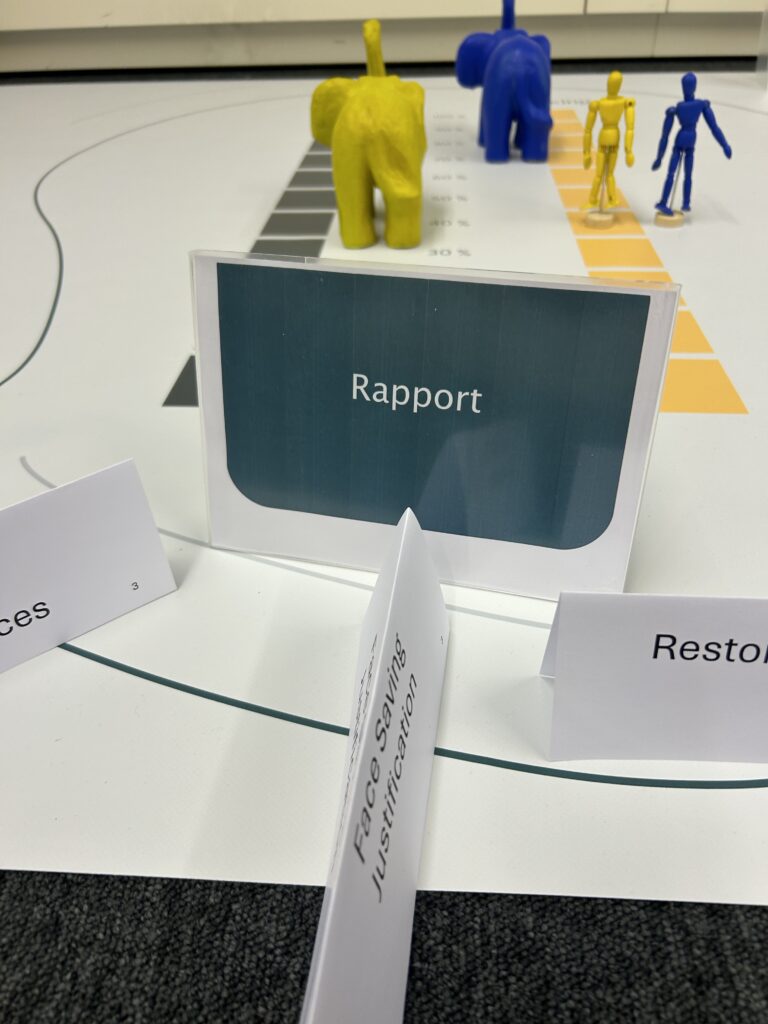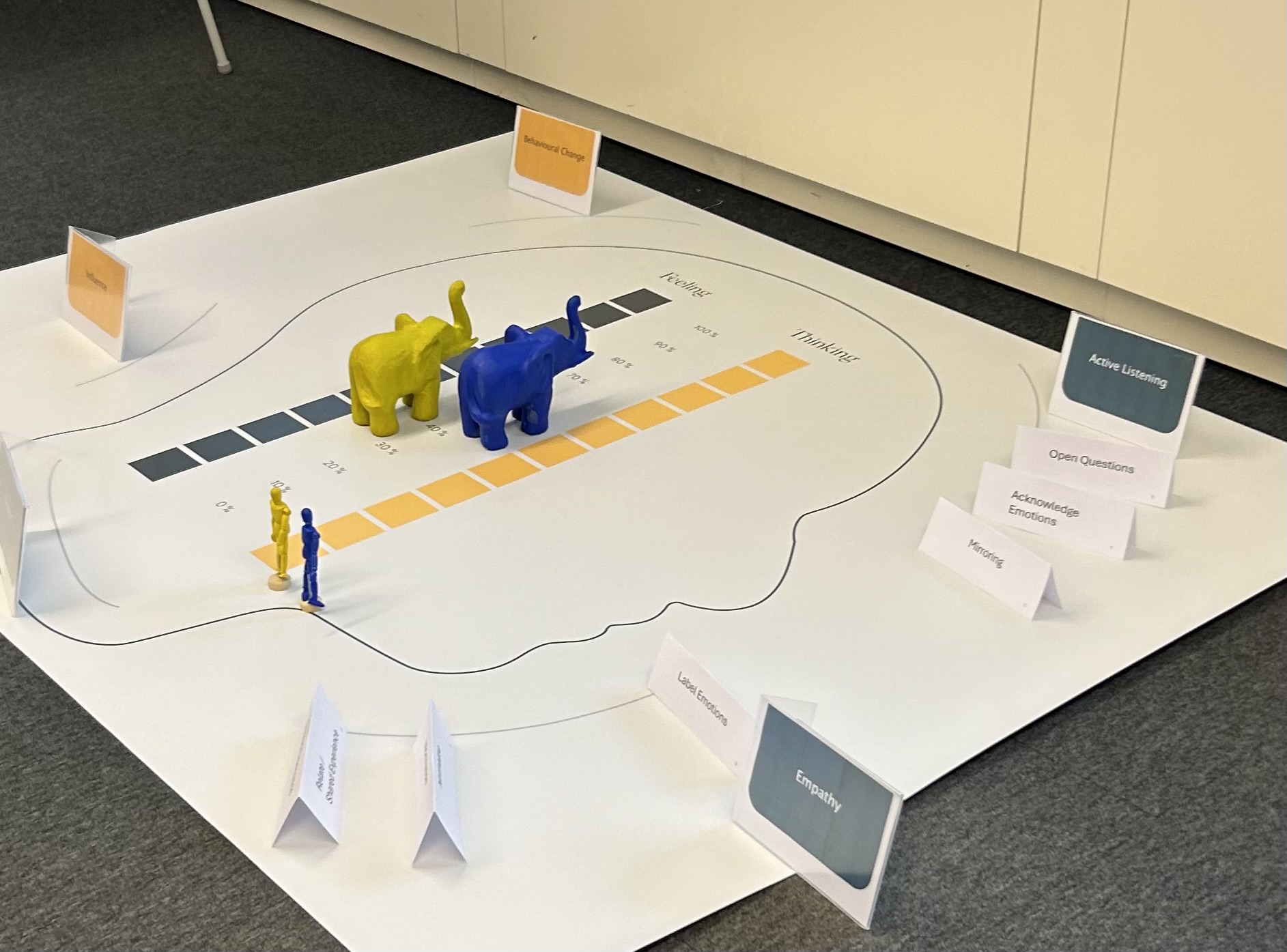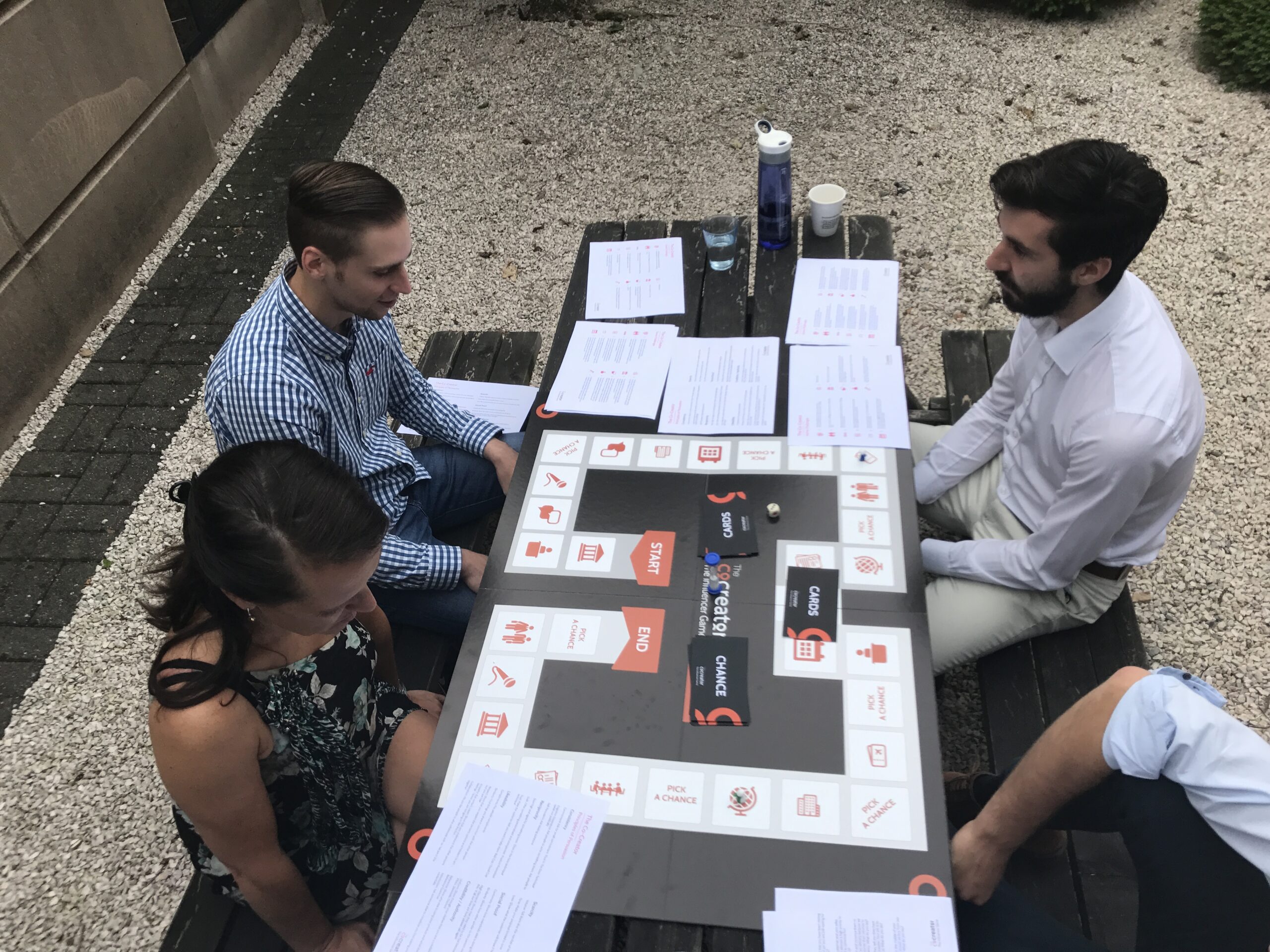In the constantly changing business landscape, change is unavoidable. Yet, managing and welcoming change, particularly when faced with resistance, is a significant challenge for many. The Behavioural Change Game stands out as an innovative solution, providing a unique simulation that enables teams to transform resistance into commitment through strategic coaching and empathy.
The Premise:
The game tasks participants with transforming a resistant salesperson, who is considering quitting, into a strong advocate for their company. This journey draws from the metaphor of the elephant (emotions), the rider (reason), and the path (the situation), referencing the works of Jonathan Haidt and Chip and Dan Heath. In teams of four, participants immerse themselves in an intense coaching scenario, interacting with a fictitious but convincingly disgruntled salesperson affected by changes within the company.
The Gameplay:
In a series of strategic interactions, players utilize a mix of psychological and behavioural theories. These include DISC Profiles, Principles of Persuasion, Nudging, Active Listening, Empathy, the Behaviour Change Wheel, and the Stairway of Behavioural Change. The game encourages participants to identify and manage different forms of resistance, guiding both the emotional elephant and the rational rider towards a path of positive change.
The Strategy:
The game’s success depends on the team’s capability to skillfully blend reasoning and emotional intelligence. Teams strive to pave the way for acceptance and advocacy by addressing the salesperson’s worries (the elephant) and logically outlining the benefits of change (the rider). Regular debriefing sessions using a large visual aid help teams evaluate their progress, comprehend the impact of their decisions, and fine-tune their strategies.
The Outcome:
At the end of the game, participants not only emerge as winners in a simulation but are also equipped with a comprehensive Behavioural Change Playbook. This toolkit allows them to apply the lessons learned from the game to real-life situations. It helps transform potential conflicts and resistance into opportunities for growth and alignment within their teams and organizations.
Conclusion:
The Behavioural Change Game is not only an educational tool but also a transformative experience. It challenges individuals to lead with empathy and intelligence. This game combines theoretical knowledge with practical application, preparing participants to handle resistance with confidence, empathy, and strategic insight. It lays the groundwork for a culture of change and innovation.




